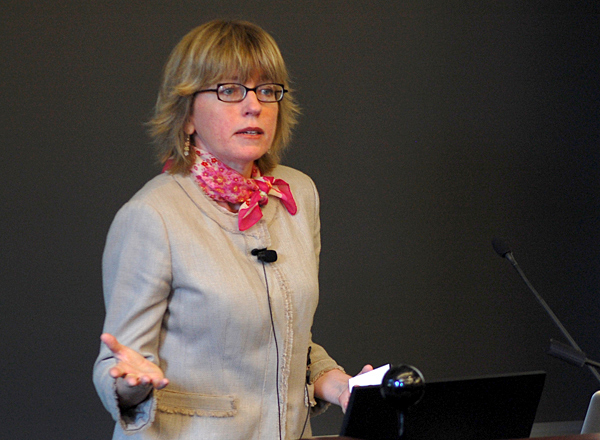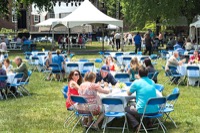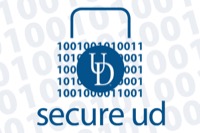
Summer Faculty Institute
90-plus faculty members attend 'Passport to Success' programs
9:42 a.m., June 9, 2011--More than 90 University of Delaware faculty members signed up for a "Passport to Success" at the UD Summer Faculty Institute, which was held from May 31 to June 3.
Approximately 50 percent of those who registered attended the full week of events. To see recordings of all presentations, visit the Summer Faculty Institute website.
FYI Stories
June 6: UDid It! Picnic
2FA protects you
A new feature was added this year—online participation. Faculty could attend this year's event from any location. The online feature produced significant participation that generated questions in a chat room; the questions were then relayed to the presenters.
The event was kicked off with a keynote presentation by Susan Smith Nash of Victoria Resources titled “Maximizing Instructional Effectiveness: Optimal Return on Your Investment of Time, Intellectual Capital and Technology.”
Nash presented her findings on how to optimize instructional development. “I’ve put together a number of ideas and points that I hope will really resonate with your experiences and give you ideas not just of what to do but how to do it also,” Nash said.
Student engagement and collaboration
"What you need to do is think about what you want to accomplish and establish a certain number of goals for outcomes from your students and for yourself. But you also need to make it a meaningful interaction through collaboration and student engagement," Nash said.
“I like the sense of vision and the idea of engagement," she added, "and I think it’s amazingly important to anything that we’re doing, and obviously technology is a tool to get to that sense of engagement."
According to Nash, to create truly life-changing, engaging online courses, faculty should incorporate personal passion into their course work. Nash suggests that faculty not only use technology to engage students but share their own expertise and experience.
"So when we tie into engagement, one of the key elements to engagement is to engage yourself and share your interests and expertise as well with your students so that you have that personal connection with what they’re doing and possibly even be an inspiring force and establish true leadership," Nash said.
For the most effective engagement, "faculty should look at how you maximize participation and flexibility,” Nash said.
Nash suggested the following strategies for increasing student engagement while getting the best return on your time and effort:
- Create reusable learning objects that you can link together in a straight-forward, easy-to-use website (i.e., one-stop shopping) using videos and graphics that are platform neutral, Learning Management System neutral, and ADA compliant.
- Use collaboration-boosting activities that are tied to experience such as sharing real-life experiences, prior learning, memoirs, lab results, opinions, responses to current events and case study responses.
- Use both formative and summative assessment. For example, portfolios are not only portable but are confidence builders, which can be created over time and use knowledge that can be reflected upon.
- Encourage multidisciplinary approaches, grounded in something situational.
- Explore learning journals that help students connect.
“How we interact with the changing world, I really think, is a matter of using technology as pure collaboration,” Nash said. "You need to find an effective way for students to collaborate and inspire each other. Collaboration helps them to make sense of the world."
Nash has been involved in the development and administration of online courses and programs since the early 1990s and has made a point to share her experience as well as her research through her websites, blogs and podcasts.
She is the recipient of collaboration and innovation awards for her work in developing innovative and high-quality online and hybrid programs that take advantage of the latest technologies.
Having held administrative positions at Excelsior College and the University of Oklahoma, Nash currently holds a leadership position at Victoria Resources, a natural resources company. Her role involves research in innovative processes.
Three other featured presentations included “Syllabus 3.0” by Allen Partridge; “Leveraging Mobile Information and Social Technologies for the Classroom” by Jon Landis; and “International Students Have Arrived. Are You Ready?” hosted by a UD panel on global recruitment and retention.
Following the presentations, participants took part in break-out, hands-on sessions in which they learned how to use technology to get to know their students before class starts, expand their guest lecture list using video conferencing, determine the best tool to use for their Web presence, use social networking communication channels, and create online office hours.
To learn more or to see recordings of all presentations, visit the Summer Faculty Institute website.








